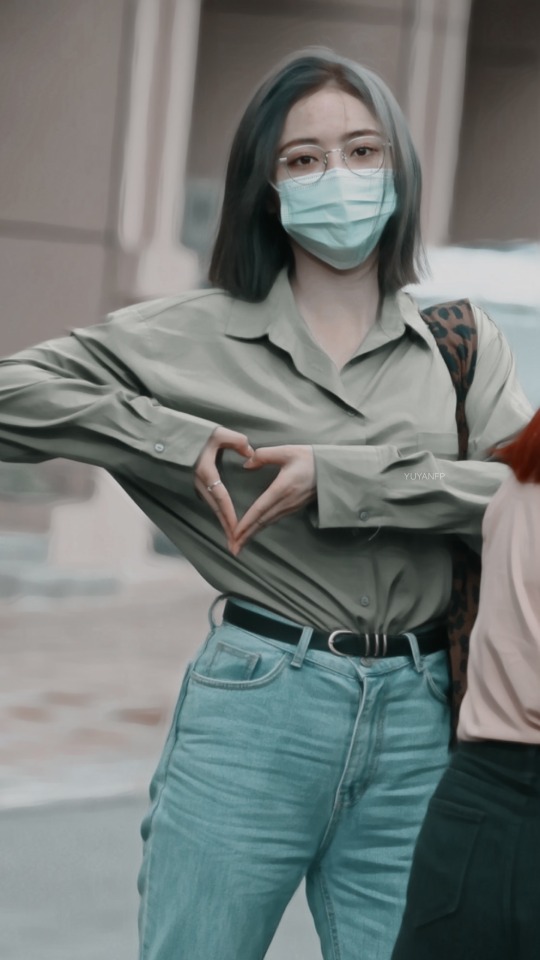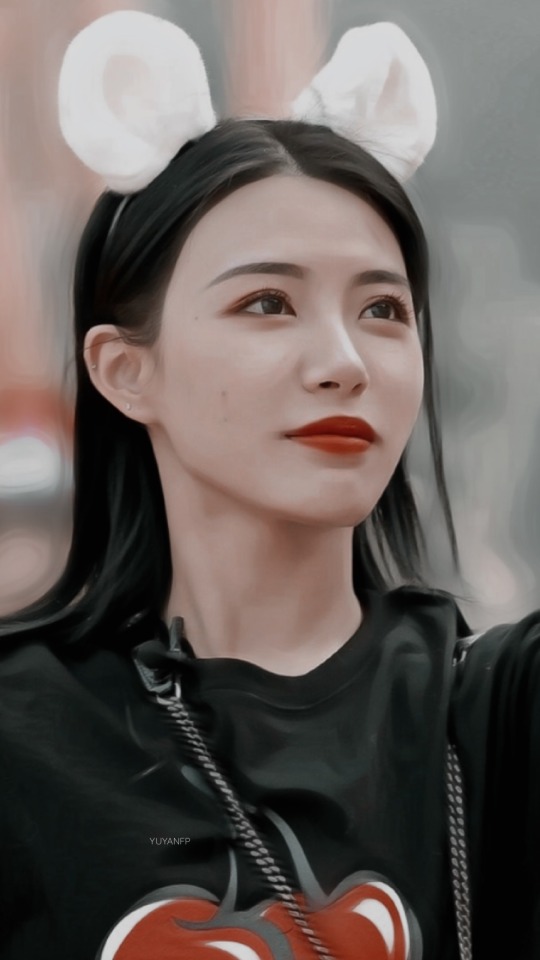#jiaqi wallpaper
Explore tagged Tumblr posts
Text









✧❁ wallpaper 〴 xu jiaqi ˗ˏˋ ´ˎ˗
reblog if you save ➳
༶•┈┈┈┈┈┈୨♡୧┈┈┈┈┈•༶
#wallpapers#xu jiaqi#jiaqi#xu jiaqi 7senses#jiaqi 7senses#7senses#cpop#cpop girls#xu jiaqi lockscreen#xu jiaqi lockscreens#xu jiaqi wallpaper#xu jiaqi wallpapers#jiaqi lockscreen#jiaqi wallpaper#cpop lockscreen#cpop lockscreens#cpop wallpaper#cpop wallpapers#7senses lockscreen#7senses lockscreens#7senses wallpaper#7senses wallpapers
12 notes
·
View notes
Photo









7senses (snh48); random lockscreens
like/reblog | @spearbinsung
#7senses#7senses lockscreen#7senses lockscreens#7senses edit#7senses edits#7senses wallpaper#7senses wallpapers#sen7es#snh48#snh48 lockscreen#snh48 edit#snh48 wallpaper#diamond#dai meng#zhao yue#akira#kiki#xu jiaqi#eliwa#xu yang yuzhuo#ann takamaki#zhang yuge#lynn#chen lin
63 notes
·
View notes
Text






'wait, my youth' lockscreens!! please like or reblog if you save it!! 🌿
#wait my youth#wait my youth lockscreen#wait my youth wallpaper#wait my youth wallpapers#wait my youth lockscreens#cdrama#cdrama lockscreen#cdrama lockscreens#cdrama wallpaper#cdrama wallpapers#cdramas#cdramas lockscreen#cdramas wallpaper#zhao yi qin#li jiaqi#li ge yang#mengyuan xu#vicent wei
61 notes
·
View notes
Text




𝐾𝑖𝑘𝑖 𝑋𝑢 𝑊𝑎𝑙𝑙𝑝𝑎𝑝𝑒𝑟𝑠
________________________________________
♡ Don't remove my watermark
♡ Don't repost w/o credits
♡ Like/reblog = save/use
________________________________________
26 notes
·
View notes
Text









QCYN girls Lockscreen
Yuyan + Daimeng + Xu Eliwa + Xu Kiki + Esther Yu + Zhao Xiaotang
Pls like or reblog if you save :)
Don’t repost
#yuyan lockscreen#yuyan#yan yu#yu yan#daimeng#dai meng#xu kiki#xu jiaqi#xu eliwa#wallpaper#youth with you#qcyn#qcyn2#kiki xu#snh48#snh48 7senses#7senses#ywy#lockscreen#cpop#cpop wallpaper#kpop#zhao xiaotang#youth with you 2#esther yu#yu shuxin
72 notes
·
View notes
Text
jiaqi is mucho 🥵






xu jiaqi 200606 weibo update
65 notes
·
View notes
Text

{Reblogs are welcome, please credit me if reposting}
0 notes
Text
Jiaqi Hu: SECTION TWO: THE WEAKNESS OF HUMAN NATURE
One: Human Evolution Remains to Be Perfected (Hu Jiaqi)
Humans today are a result of evolution. On the path of evolution, humans became distinguished from animals due to our reliance on the brain. It is human intelligence that enabled mankind to adapt to nature and ultimately rule the earth.
Upon further analysis of the differential evolution of animals and humans, we refer to evolution of animals as “ordinary evolution.” It is manifested in two aspects: body and instinct.
First of all, animals must adapt their bodies to suit the environment. The body discussed here refers to all organs apart from the brain. In order to resist the cold, animals evolved skin and fur; the higher the latitude, the thicker the skin and fur of animals. When angiosperms prospered, many gymnosperm plants became extinct, and some animals that fed on them slowly died out because their digestive systems could not adapt to the new food environment. Mice and insects faced many threats, so they chose to adapt their reproductive organs to better survive. These animals reach sexual maturity very early and reproduce quickly and in large numbers, ensuring their continued survival even in the most critical conditions.

Bodily evolution alone is not enough. Even if an animal’s body adapted to the environment, slow reaction speeds would still lead to its extinction. This is why animals must also evolve their instincts in addition to evolving their bodies. All animals have instincts; they are a response to the need for survival, reproduction, and food. As the environment evolves, animals must be equipped with suitable instincts and corresponding bodies to ensure successful survival.
Humans differ most from animals in our initiative to adapt to the environment. Humans have the desire to create and change the environment and will proactively enhance this ability. That is why humans have an exclusive evolution in addition to the ordinary evolution of animals (including both body and instinct evolution); this is “intelligence evolution.”
The intelligence evolution that separates humans from animals can also be divided into two aspects: the first is “creativity,” and the second is “rationality.” Creativity refers to the ability to understand and transform nature, as well as proactive adaption to the environment. Creativity is mainly concentrated in man’s mastering of science and technology.
Animals can only obtain food in the most basic and simple ways. They chase after their food and chew it to digest. Due to creativity, primitive humans learned that fire could produce tastier meat and also render many inedible things edible. Humans also learned to breed and domesticate animals and plants early on. Today we can use high-tech means to increase the yield and variety of crops and accelerate the growth and breeding speeds of livestock.
Animals rely entirely on their bodies to adapt to seasonal changes in weather. Humans learned to use fire to combat cold weather long ago; primitive humans also learned to use animal skins to sew clothing for warmth, enabling them to hunt in all weather. Today the different types of clothing are not only practical and decorative but also a form of art expression.
Animals have lairs, but they are simple structures built instinctively. Humans construct houses based on creativity. Humans utilized thatch and bricks made of soil to build houses long ago, and building materials today have expanded exponentially. People smelt iron ore into steel, burn limestone into cement, melt quartz into glass, saw rocks into stone, and use chemical means to synthesize paints and wallpapers. Beautifully dynamic high-rise buildings cover the globe, and air conditioning and heating ensure that the weather indoors is always pleasant.
Sadly, human creativity is always first and foremost applied to war and abundantly expressed in the unconstrained excavation of nature. Humans stubbornly persist in quarrying nature, but rarely stop to consider the fatal retaliations science and technology may bring. This is because humans have not reached sufficient levels of evolution in terms of rationality. Animals have no rationality. They nurture their cubs and refrain from feeding on their own due to instinct. Rationality is a wisdom unique to mankind; it is a fundamental aspect that separates us from animals.
Once humans realized greenhouse gas emissions led to global warming and other catastrophic consequences, countries convened to sign a multilateral agreement to limit greenhouse gas emissions. This is rationality. When people realized the threat of nuclear developments, nuclear disarmament negotiations were initiated. This is also rationality. However, human rationality shows a major imbalance; we will call this the intelligence evolutionary imbalance phenomenon, or evolutionary imbalance for short.

Evolutionary imbalance is first manifested as an imbalance within the human population. A small number of people have higher degrees of rationality, but the majority are less rational; this imbalance is also manifested in the fluctuation and instability of individual rationality.
The second imbalance is demonstrated in the lagging speed of rational evolution in comparison with creative evolution. The evolution of human creativity has moved in leaps and bounds. The use of tools, the mastery of fire, the Agricultural Revolution, and the invention of the steam engine are four major leaps. In particular, the advent of steam engines liberated productivity and demonstrated the importance of science and technology. Humans began to explore all available uses of science and technology, resulting in an even higher leap of creativity: the Industrial Revolution.
The Industrial Revolution changed the world completely. In the two hundred years since then, we have created more wealth than ever before; achieved countless triumphs in literature, art, philosophy, and other social sciences; and had especially noteworthy breakthroughs in natural sciences and technology. The world has undergone great change as a result.
Our knowledge of space ranges from nuclei as small as 10-10 meters to the edges of the universe thirteen billion light-years away. Scientists discovered a “strong force” within nuclei that can release the greatest energy in nature, giving rise to nuclear weapons capable of enormous destruction. The phenomenon of electromagnetic induction was used to transform invisible, intangible electromagnetic waves to “messengers” for communication that could travel tens of thousands of miles. Biologists discovered the double helix molecules called DNA to be the carriers of biological genes, allowing them to manipulate animals and flowers to grow as they pleased.
The first leap in human creativity took millions of years, the second took ten thousand years, and the third took only two hundred years. In this short period of time, the world changed more than it did in all of history. Every leap of creativity shortened the evolutionary interval and generated more energy than the last. This is consistent with traditional evolutionary theory—the higher-functioning an organism is, the faster its biological evolution. Sadly, the evolution of human rationality contrasts sharply with humans’ creativity evolution. It moves at a very slow pace.
In terms of creativity, animals cannot begin to compare with humans. In terms of rationality, however, humans have retained many animal characteristics and can even be inferior to animals at times. The simplest example is that humans, like animals, retain typical intraspecific competition. This is the most irrational side of man. Before the formation of human society, people were already accustomed to applying the most advanced technologies to weapons. These weapons were not only aimed at wild animals but also at each other. After creativity brought humanity into civilized society, hunting was no longer an essential part of food gathering, and beast attacks no longer constituted a major threat. The main threat between humans became the massacre of each other, and all the most advanced techniques of humanity were devoted to this cause.

Since the Industrial Revolution, humans have had an outpouring of creativity while our rationality has not kept pace. The achievements of human creativity are becoming more and more powerful, yet human rationality is still stuck hundreds and thousands of years in the past. All the most advance scientific and technological achievements are still first applied to weapons; these advancements continue to bring us just as much damage and pain as they do wealth.
The imbalanced nature of human evolution shows that our development is still far from perfect. The weakness of human nature is the concrete manifestations of such imperfect evolution.
Two: The Weakness of Human Nature
The weakness of human nature is inherent to the species itself. Unless significant evolution takes place, this weakness will persist alongside humanity. The external display of human weakness is not fixed but will fluctuate as times, regions, groups, and social environments change. However, while the external behaviors may change in a myriad of ways, the nature of human weakness remains the same.
So what is the weakness of human nature? Here we will identify all those characteristics not conducive to the overall values of humanity as being weak-nesses of human nature. These characteristics are numerous in number and too complex to elaborate one by one. In this section, we will focus on the elements that may fundamentally affect the realization of human values and therefore threaten the overall survival and happiness of humanity. These are the weaknesses that we cannot evade.
1. Visible Interests
Mankind often faces three major conflicts of interest: the conflict between immediate and long-term interests, the conflict between surface and fundamental interests, and the conflict between fractional and overall interests. Long-term interests, fundamental interests, and overall interests are usually not reflected directly and cannot bring immediate benefits. They require in-depth consideration to become clear. In comparison, immediate interests, surface interests, and fractional interests are direct and yield clearly visible results. That is why we call them visible interests.
It stands to reason that immediate interests, surface interests, and fractional interests are included under the umbrella of long-term interests, fundamental interests, and overall interests. If the latter three were impaired, the former three would ultimately be damaged as well; thus, the former are contingent upon the latter. In the case of conflict, the former three should obey the latter—that is a matter of common sense. However, the situation is often reversed. The direct and immediate nature of visible interests often induces people to choose them instead of long-term, fundamental, and overall interests. This is the visible interest urge inherent in human nature.
Most people fall into the habit of thinking that the troubles they face are more essential, the issues they are dealing with are more critical, and the problems they have must be solved before all else. This mentality means that people are easily tempted by visible interests.

2. Extreme Selfishness
When we say that someone tramples other people underfoot for their own gain or only thinks of themselves, we are referring to the selfishness that is inherent in human nature. Such behavior often harms others to no gain, or even harms oneself, yet it is still a widespread phenomenon among humans. We will call this weakness the extreme selfishness of human nature.
War has always been a key component of human history. War itself is a detrimental behavior that causes harm to all parties involved. The perpetrators of war may be victorious in the massacre of their enemies, but they pay a steep price of blood and death as well.
In a hypothetical scenario where one person is journeying through a desert with a small amount of food and water, we can be sure that this person will reasonably arrange their supply to last as long as possible. However, if this scenario is changed to include a group of people, selfishness will propel some people to eat more, regardless of the group’s survival. In reality, once the food and water are prematurely consumed, the entire group will die. This is not a concern of the selfish hoarder; for as long as he lives within a group, he will act irrationally due to the extreme selfishness of human nature.
3. Self-Deception
In order to excuse their irrational behavior and maintain peace of mind, humans will often come up with acceptable reasons that not only deceive others but also themselves. This behavior can also be seen in humanity’s belief of absurdities in the face of hardships and dangers. This urge to placate and deceive oneself is the self-deceptive nature of man. The self-deception of humanity is completely irrational; it not only seeks to comfort the self but also hopes to deceive and becloud others.
The self-deception of humans generally manifests in these situations: First, when difficult problems or dangers arise and no one wants to work to solve them but instead wishes to seek comfort; second, when visible interests conflict with long-term, fundamental, and overall interests and one wishes for a good reason to choose the former; third, when mistakes happen and one wishes to explain away the responsibility and guilt to others and themselves. Whenever one of the above situations occur, people will come up with a number of seemingly reasonable but actually absurd reasons to deceive and comfort both themselves and those around them.
Self-deception’s greatest harm is that it allows human irrationality to strengthen continuously. As long as any major irrational behavior can be explained away with seemingly reasonable excuses, humanity will continue to deviate from overall values and inch closer to the brink of extinction.

4. Eternal Competitiveness
Human turmoil stems from the competitiveness of human nature; it is the cause of jealousy, vanity, and murder. The competitiveness of human nature manifests in infancy and accompanies us throughout our lives. Such competitiveness also accompanies human society from start to finish, which is why we call this the eternal competitiveness of human nature.
The irrationality of man stems largely from human competitiveness; individuals tend to act rationally while competing groups engage in irrational behavior. As a result, wars are usually caused by human competitiveness as well; such competitiveness may include the competition and jealousy between nations, ethnicities, and religions as well as the vanity of leaders. If only one country existed in the world, the problem of greenhouse gas emissions may have been solved long ago. In the negotiations between countries, the desire to gain an advantage will always be an insurmountable obstacle.
When the eternal competitiveness of humanity is expressed in individuals, it leads to lifelong burden and struggle. Without the need for comparison, a person would only need basic necessities to be satisfied with life. But when competition is introduced among a group of people, every individual worries about lagging behind and exhausts themselves physically and mentally for the rest of their life.
5. Endless Desires
Human desire has no end. The more we acquire, the more we want. This is the endless desire inherent in human nature. Some people think that in an environment of abundance where everyone can have what they want, human desires will be satisfied. This is merely a fantasy; the world may one day meet all the needs of humanity, but it would never be able to satisfy human greed. Unless human nature goes through significant development, humans will never be fully satisfied.
The endless desires of mankind have propelled the increase of material wealth and the development of science and technology; however, it has also brought by-products like war, crime, psychological torment, social turmoil, and environmental damage.
0 notes
Text








♡☆♡ xu jiaqi wallpaper
reblog if you save ▪︎
-----------------------------------------------------------
#wallpapers#xu jiaqi#xu jiaqi the9#the9#the nine#xu jiaq the nine#xu jiaq locks#xu jiaq lockscreen#xu jiaq lockscreens#xu jiaq wallpaper#xu jiaq wallpapers#the9 locks#the9 lockscreens#the9 lockscreen#the9 wallpaper#the9 wallpapers#cpop#cpop locks#cpop lockscreens#cpop wallpapers#cpop girls
28 notes
·
View notes
Text









♡☆♡ xu jiaqi wallpaper
reblog if you save ▪︎
-----------------------------------------------------------
#wallpapers#xu jiaqi#xu jiaqi the9#xu jiaqi the nine#the9#the nine#xu jiaqi locks#xu jiaqi lockscreen#xu jiaqi lockscreens#xu jiaqi wallpaper#xu jiaqi wallpapers#the9 locks#the9 lockscreens#the9 lockscreen#the9 wallpaper#the9 wallpapers
16 notes
·
View notes
Text




KIKI XU
WALLPAPER
________________________________________
♡ Dᴏɴ·ᴛ ʀᴇᴍᴏᴠᴇ ᴍʏ ᴡᴀᴛᴇʀᴍᴀʀᴋ
♡ Lɪᴋᴇ/ʀᴇʙʟᴏɢ = sᴀᴠᴇ/ᴜsᴇ
♡ U ᴄᴀɴ ʀᴇᴘᴏsᴛ ʙᴜᴛ ᴅᴏɴ·ᴛ ᴛᴇʟʟ ɪᴛ·s ʏᴏᴜʀ ᴏᴡɴ ᴘʟᴇᴀsᴇ
________________________________________
#cpop lockscreen#cpop edit#cpop icons#cpop#cpop idols#cpop wallpapers#the9 kiki#the9 jiaqi#the9edit#the9
7 notes
·
View notes
Text



Lockscreens
Kong Xueer + Yu Yan + Xu Jiaqi
Like or reblog if you save:)
Don’t repost
#qcyn yuyan#qcyn2#cpop#yan yu#youth with you 2#yuyan#lockscreen#wallpaper#yu yan#aesthetic#kong xueer#snow kong#kiki xu#xu kiki#xu jiaqi#snh48 7senses#snh48
43 notes
·
View notes
Text
𝖗𝖊𝖉 𝖆𝖕𝖕𝖑𝖊
Kiki Xu Wallpaper


13 notes
·
View notes